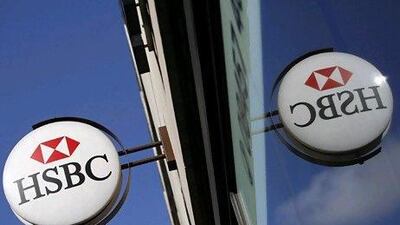There hasn't been much in the way of big public news for some time from the drama that has gripped Saudi Arabia off and on for more than two years: the multibillion-dollar battle between Maan Al Sanea and the Al Gosaibi family.
However, I hear that may be about to change, with pressure coming from the most unlikely of channels in the kingdom - the female members of the two warring clans.
Travel bans were imposed on many members of the two families at the start of hostilities in May 2009, and that is having serious effects, especially for the women, who had become accustomed to summer shopping trips in Paris and London, and winter skiing at some of the finest Swiss resorts. The poor souls have now missed out on two seasons of pleasure excursions and have had to make do with the dubious delights of Al Khobar, where both groups have their business headquarters.
I'm sure it's nice there, but Al Khobar surely cannot compare with Klosters or Knightsbridge.
A London-based source close to the affair tells me: "Something's got to give. It's cabin fever now in Al Khobar, and withdrawal symptoms are starting to kick in. The men in the family are coming under extreme pressure to get something sorted out that will let the girls fly off to Europe again."
It's the kind of thing that could just break the logjam in the whole convoluted saga.
***
I wonder what colour west London is on the world map produced by HSBC's chief executive, Stuart Gulliver, to show the banking giant's new global strategic priorities?
Mr Gulliver presented a visual of the bank's world vision, with "strategic" areas such as China and the Gulf coloured bright red; further down the schedule of priorities came Poland, Russia and others, where HSBC has reduced its presence or pulled out entirely. These are coloured pink or grey.
While the UK is scarlet, there must be one little patch of grey over Notting Hill in west London, my old "manor". On a recent trip, I was shocked to find HSBC had closed down what must have been the world's busiest banking branch.
The branch in Portobello Road not only served well-heeled residents and the tens of thousands of tourists who descend on the area at weekends, when the street market is in full swing. It also served the small army of traders who run stalls there and who are the lifeblood of this vibrant area.
It was not just the branch that went, but the ATMs, which attracted queues at all times. Now the local branch of Santander offers the only ATM in the area, and 30-minute waits are not uncommon.
So was the Portobello HSBC part of the "sub-scale European operations" identified by Mr Gulliver? I put the question to a silvery-tongued HSBC executive but didn't understand the answer; he seemed to suggest it was all to do with the phases of the lunar cycle. Whatever did he mean? I shall report back.
***
It doesn't get any bigger than the football match this weekend at the Etihad stadium between Manchester City and my team, Tottenham Hotspur from north London.
City's team has been assembled at the cost of hundreds of millions of pounds, and for much of the season seemed to be running away with the Premier League championship; Spurs, while not exactly financially strapped, spent a great deal less to produce a side generally regarded as currently playing the best football in England.
City thrashed Spurs 5-1 last August, but we now sit in third place, just five points behind, with Manchester United second.
A three-horse race is preferable to a two-animal affair, so the neutrals (excluding Arsenal fans) will probably agree with me that a Tottenham win is a good thing.
My forecast: City 0, Tottenham 1, scorer Jermain Defoe. You read it here first.

